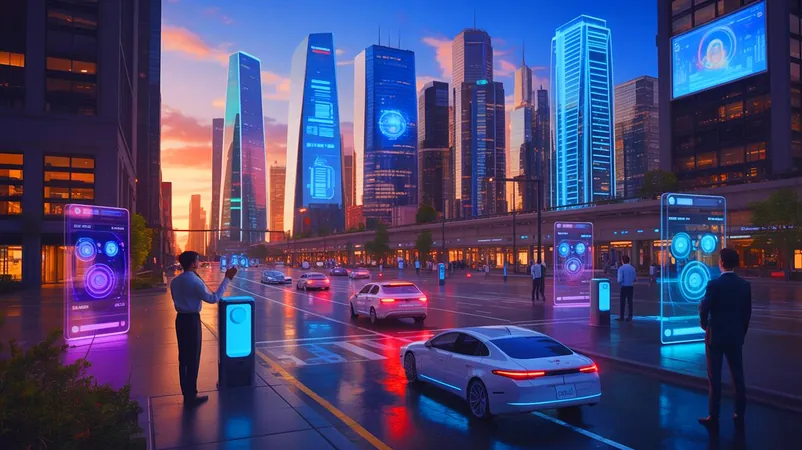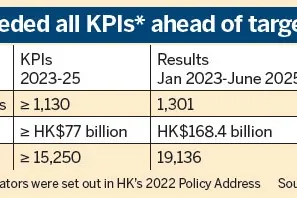
Is Human-Level AI Just a Few Miracles Away? Insights from Microsoft Pioneer Nathan Myhrvold
2025-07-05
Author: Yan
The Ongoing AI Revolution
Artificial Intelligence (AI) has intrigued and alarmed people for decades. The pivotal question remains: can AI ever truly mimic human intelligence? Nathan Myhrvold, a significant figure from Microsoft's formative years and the CEO of Intellectual Ventures, shared his perspective on this at a recent event. He claims that achieving AI on par with human cognition is merely a few 'miracles' away—a statement that ignites both hope and skepticism within the tech landscape.
Current Triumphs and Trials in AI
AI technology is rapidly evolving, with industry giants like Microsoft and OpenAI propelling advancements that push the boundaries of what machines can achieve. Myhrvold notes that while AI has excelled in tasks once reserved for humans, its current limitations lie in its ability to conceptualize and reason in novel ways. However, the field is witnessing accelerated growth, driven by hefty investments and innovative risk-taking.
One monumental moment in AI progression was when a coalition of visionary thinkers at Microsoft and OpenAI committed billions to AI research, a decision now seeming quite prescient given the strides made since. Myhrvold likens today’s AI landscape to the dawn of personal computing, suggesting that we’ve barely scratched the surface of this technology’s vast potential.
What Constitutes a 'Miracle' in AI Development?
Myhrvold's call for 'miracles' in AI development underscores the intricate hurdles yet to be overcome. These so-called miracles are extraordinary breakthroughs necessary for constructing AI that not only operates efficiently but aligns ethically and philosophically with human values. As AI capabilities expand, the designs must ensure that these systems respect human contexts and moral frameworks.
He also stresses that the innovative application of AI in solving real-world problems is critical moving forward. Current AI may compose poetry, but the real challenge lies in integrating AI into practical applications that can revolutionize entire industries and genuinely enhance human capabilities.
A Visionary Look at Future Energy Needs
With Myhrvold’s successful track record in tech predictions—including the merging of computers with consumer electronics—his insights into AI's future carry weight. He anticipates a surge in energy demands to accommodate data-driven technologies, pointing toward next-generation nuclear power as a solution. As AI and cloud computing proliferate, innovative energy alternatives, like those from TerraPower, where he serves as vice-chairman, will be crucial.
Ethics in the Age of AI
As AI technologies advance, ethical considerations are becoming paramount. Myhrvold draws comparisons between public fears of AI and fictional villains, emphasizing that such narratives can obscure essential discussions about AI's development to benefit humanity. These implications range from boosting productivity to addressing potential security threats.
He highlights that responsibly crafting AI technology—acknowledging both its capabilities and constraints—will shape policies guiding its usage. The dialogue surrounding AI ethics is vital as it will direct the future development and deployment of these transformative technologies.
The Road Ahead: A Call for Collaboration and Responsibility
The path towards human-level AI is filled with excitement but fraught with challenges that demand innovation, collaboration, and ethical foresight. As we inch closer to this profound reality, the pressing question lingers: how will we foster a future where AI aligns with humanity's best interests while navigating the complex ethical landscape it presents?



 Brasil (PT)
Brasil (PT)
 Canada (EN)
Canada (EN)
 Chile (ES)
Chile (ES)
 Česko (CS)
Česko (CS)
 대한민국 (KO)
대한민국 (KO)
 España (ES)
España (ES)
 France (FR)
France (FR)
 Hong Kong (EN)
Hong Kong (EN)
 Italia (IT)
Italia (IT)
 日本 (JA)
日本 (JA)
 Magyarország (HU)
Magyarország (HU)
 Norge (NO)
Norge (NO)
 Polska (PL)
Polska (PL)
 Schweiz (DE)
Schweiz (DE)
 Singapore (EN)
Singapore (EN)
 Sverige (SV)
Sverige (SV)
 Suomi (FI)
Suomi (FI)
 Türkiye (TR)
Türkiye (TR)
 الإمارات العربية المتحدة (AR)
الإمارات العربية المتحدة (AR)